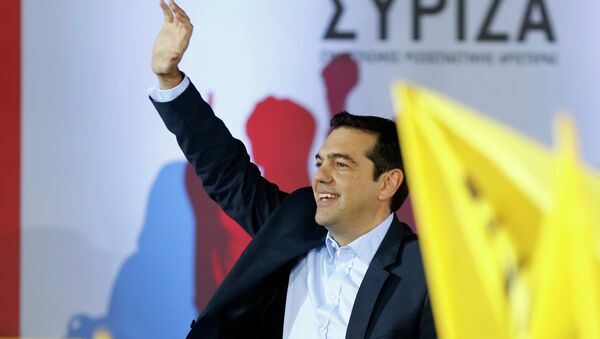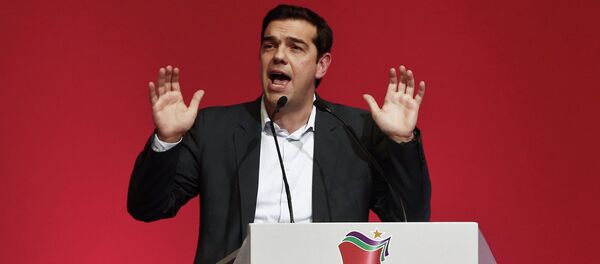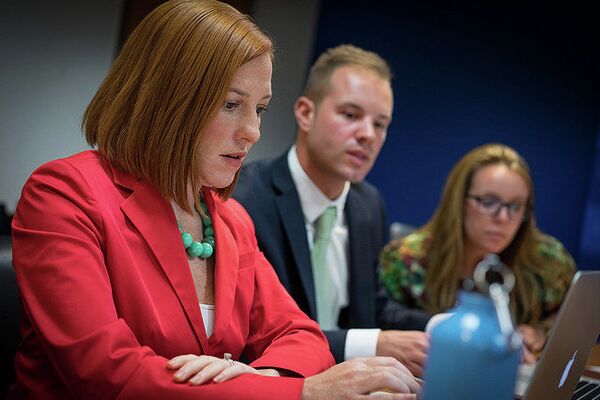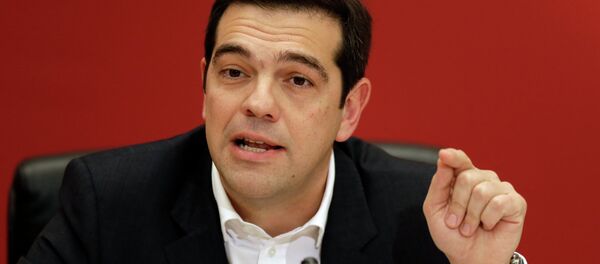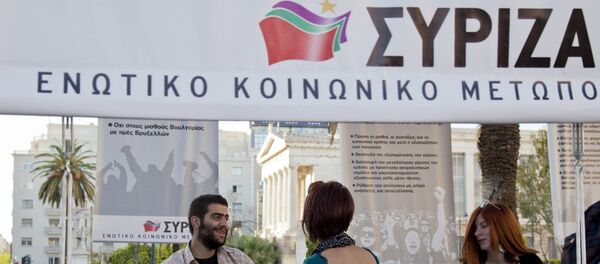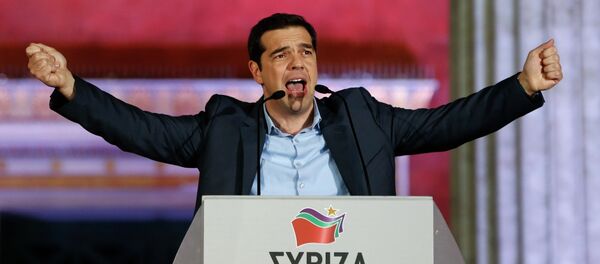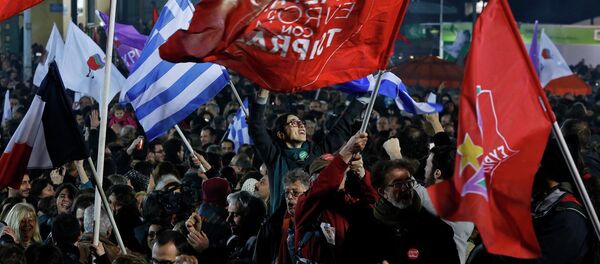He was meeting journalists as head of the opposition party, but by Monday he was the new national leader, with preliminary vote counts indicating a sure win for Syriza, which pledges to curb austerity measures in the country, write off the bulk of the national debt and to withdraw from the memoranda signed with creditors under which Greece was obliged to coordinate each step it makes.
Tsipras does not wear neckties. And he started driving a car quite recently. Forty-year-old Tsipras, who has a degree in engineering, always preferred motorcycles, and continued riding his BMW GS 650 even while heading the country’s largest opposition party.
Family and Religion
In Orthodox Greece, where 98 percent of the population believes in God, Tsipras dared to admit he was an atheist.
"I am not going to hide from you that I do not believe in God, I am not religious. I think it is common knowledge that most of the people in the left movement are not religious," Tsipras said in 2008.
Despite his religious position, Tsipras visited the Holy Mountain of Athos and won over the residents of the Monastic State, who referred to him as “an interesting, polite and inquisitive person”.
"He came with great humility. He behaved the way one ought to behave in this place, he asked what he should do and followed the instructions meticulously," one of the monks told journalists.
Politics
While at university, Tsipras took part in all the major rallies, and, after the split of the Communist Party in 1991, joined the coalition of left forces. As he put it himself, “the conservative way of thinking and management” of the Communist Party of Greece did not fare well with his temperament. He was elected Secretary of the Youth Union at university which he headed for four years. After graduation he set up his own company. However, after five years of professional activities, he switched to politics.
Tsipras has been criticized for populism and being too ambitious, but the young, ever-smiling politician has managed to head the largest opposition party, outpacing experienced political veterans, and to turn “the 4 Percent Party,” referring to the amount of votes Syriza used to win at elections, into a winner.
Tsipras’s political star began to rise in 2008 when he secured 70.41 percent of votes at the election for the chairperson of the Coalition of the Radical Left, and out-stripped the famous politician Photis Kouvelis who only won 28.67 percent.
Nevertheless, as early as December 2014, Kouvelis supported Tsipras’s position and declined to vote for the country’s president, thus pushing the nation towards a political crisis and early election. As a token of his appreciation, Kouvelis may now be offered the country’s presidency.
In 2012, Tsipras was the main competitor of New Democracy’s leader Antonis Samaras, and was defeated by a close margin of under three percent. Now he has his revenge.
Prior to the May 2014 European Parliamentary elections, Tsipras accepted a proposal to serve as the European left candidate for European parliamentary speaker. It was then that Tsipras became a politician at a European level, established a number of contacts and showed his commitment to resolving Greece’s problems.
"Europe Will Start Changing With Greece"
However, the situation in the country has changed. Due to austerity measures imposed by Tsipras’s main opponent Samaras, Greece survived and even began to emerge from the economic crisis.
But the way it was done made Greeks angry, and they decided that 40 years of power was enough for the Pasok and New Democracy Parties, and it was time for a change in power.
Many Greeks view 40-year-old Tsipras as a symbol of hope, however, he has become a major threat for the Eurozone for many in Europe. Meanwhile, Tsipras’s promises to make Europe reshuffle its debt policy if he came to power did not just scare many politicians, but garnered support among both the left and the right. Politicians began to call to finally take into account the interests of poorer nations in the EU, whereas the international media took a more favorable stance toward Tsipras.
“The Che Guevara of Europe," wrote the British Telegraph, in its report on Tsipras from Athens, adding that “Eurozone harmony is the last thing on Tsipras’s mind.”
Now everyone is waiting for the new national leader to start implementing his promises, and seeing what impact they will have on harmony in the eurozone.
